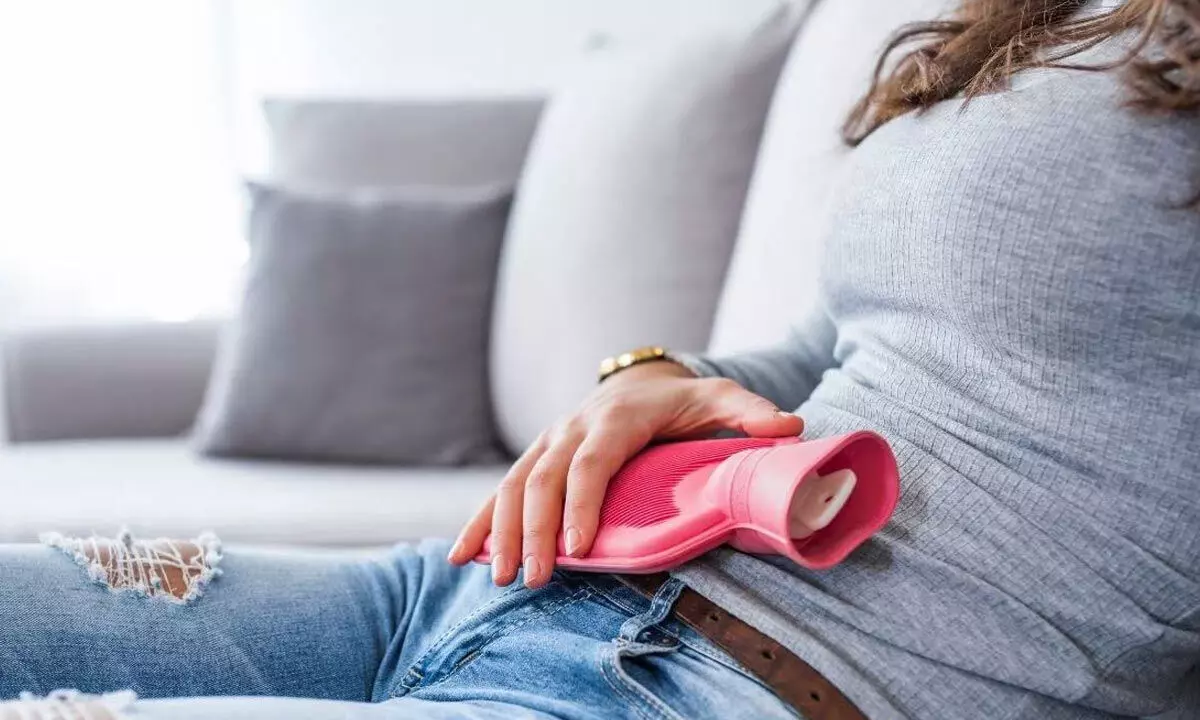Centre told to frame model policy on menstrual leave for women
Share :

National policy on distribution of menstrual hygiene products at advanced stage, says Centre
New Delhi: The Supreme Court on Monday directed the Centre to frame a model policy on menstrual leave for women employees by holding consultations with states and other stakeholders.
A bench comprising Chief Justice D Y Chandrachud and Justices J B Pardiwala and Manoj Misra said the issue related to policy and was not an issue for the courts to look into. Moreover, such a decision from a court on granting such leave to women may prove to be counterproductive and “detrimental” to the cause as employers may avoid employing them. How will the leave encourage more women to be part of the workforce, the court asked the petitioner and said mandating such leave will lead to women “being shunned from the workforce”. “...we do not want that,” the bench said
“This is actually a government policy aspect and not for the courts to look into, “it said. “Petitioner says that a representation was submitted to the Centre in May 2023. Since the issues raise multifarious objectives of state policy, there is no reason for this court to intervene in light of our previous order,” it said.
The bench, however, permitted lawyer Rakesh Khanna, appearing for petitioner and lawyer Shailendra Tripathi, to move the secretary of the Ministry of Women and Child Development and Additional Solicitor General Aishwarya Bhati. “
We request the secretary to look into the matter at the policy level and take a decision after consulting all stakeholders and see if a model policy can be framed,” it ordered.
The court made it clear that that the consultation process of the Centre will not come in the way of states if they take any steps in this regard. The top court had earlier disposed of a plea seeking menstrual pain leave for women students and working women across the country.
It had then said that since the issue falls under the policy domain, a representation can be made to the Centre. The senior lawyer said that till date no decision has been taken by the Centre.
Meanwhile, the Centre told the Supreme Court on Monday that the national policy on distribution of menstrual hygiene products to adolescent school-going girls is at an advanced stage of formulation.
A bench comprising Chief Justice D Y Chandrachud and Justice J B Pardiwala took note of the submissions of Additional Solicitor General (ASG) Aishwarya Bhati, appearing for the Centre, and allowed her plea for grant of two more months for framing of the policy.
The top court was hearing a plea of Congress leader and social activist Jaya Thakur seeking directions to the Centre and the states to provide free sanitary pads to girl students of class 6-12 and ensure separate female toilet facilities in all government-aided and residential schools.
The framing of the national policy on the issue is at an advanced stage and two more months’ time may be granted, the ASG said. “We will keep this matter on the first Monday of September month,” the bench said.
The plea highlighted the difficulties faced by adolescent females from poor backgrounds in the schools. The Centre had earlier said that it was in the process of collating all necessary material to form a national policy on the distribution of menstrual hygiene products to school-going girls in terms of the orders dated April 10, 2023 and November 6, 2023.
The top court had directed the Centre to lay down a national model for building toilets commensurate with the number of girl students in all government-aided and residential schools across the country.
While emphasising uniform procedure, it also asked the Union government about the policy it has formulated for the distribution of sanitary napkins to female school students nationally.
During an earlier hearing, the Centre had informed the apex court that a draft national policy for the distribution of sanitary napkins free of cost to school-going girls has been formulated and sent to stakeholders to elicit their comments.
On April 10, the apex court appointed the secretary of the Ministry of Health and Family Welfare (MOHFW) as the nodal officer to coordinate with the states and UTs, and collect relevant data for formulating a national policy. It noted that the MoHFW, the Ministry of Education and the Ministry of Jal Shakti have schemes on menstrual hygiene management.
The court also ordered all states and UTs to submit their menstrual hygiene management strategies and plans that are being executed with the help of funds provided by the Centre or through their own resources to the Mission Steering Group of the National Health Mission within four weeks.
The apex court said the states and UTs shall also indicate to the Mission Steering Group of the National Health Mission the appropriate ratio of female toilets for residential and non-residential schools in their respective territories. It asked all states and UTs to also indicate the steps, which have been taken to provide low-cost sanitary pads and vending machines in schools and their appropriate disposal.
The plea has said adolescent females from poor backgrounds between the ages of 11 and 18 years face serious difficulties in receiving education, a constitutional right under Article 21A of the Constitution. “These are adolescent females who are not equipped with and are also not educated by their parents about menstruation and menstrual hygiene.
“The deprived economic status and illiteracy lead to a prevalence of unhygienic and unhealthy practices which have serious health consequences, increase obstinacy and lead to eventual dropping out from schools,” the petition said.







